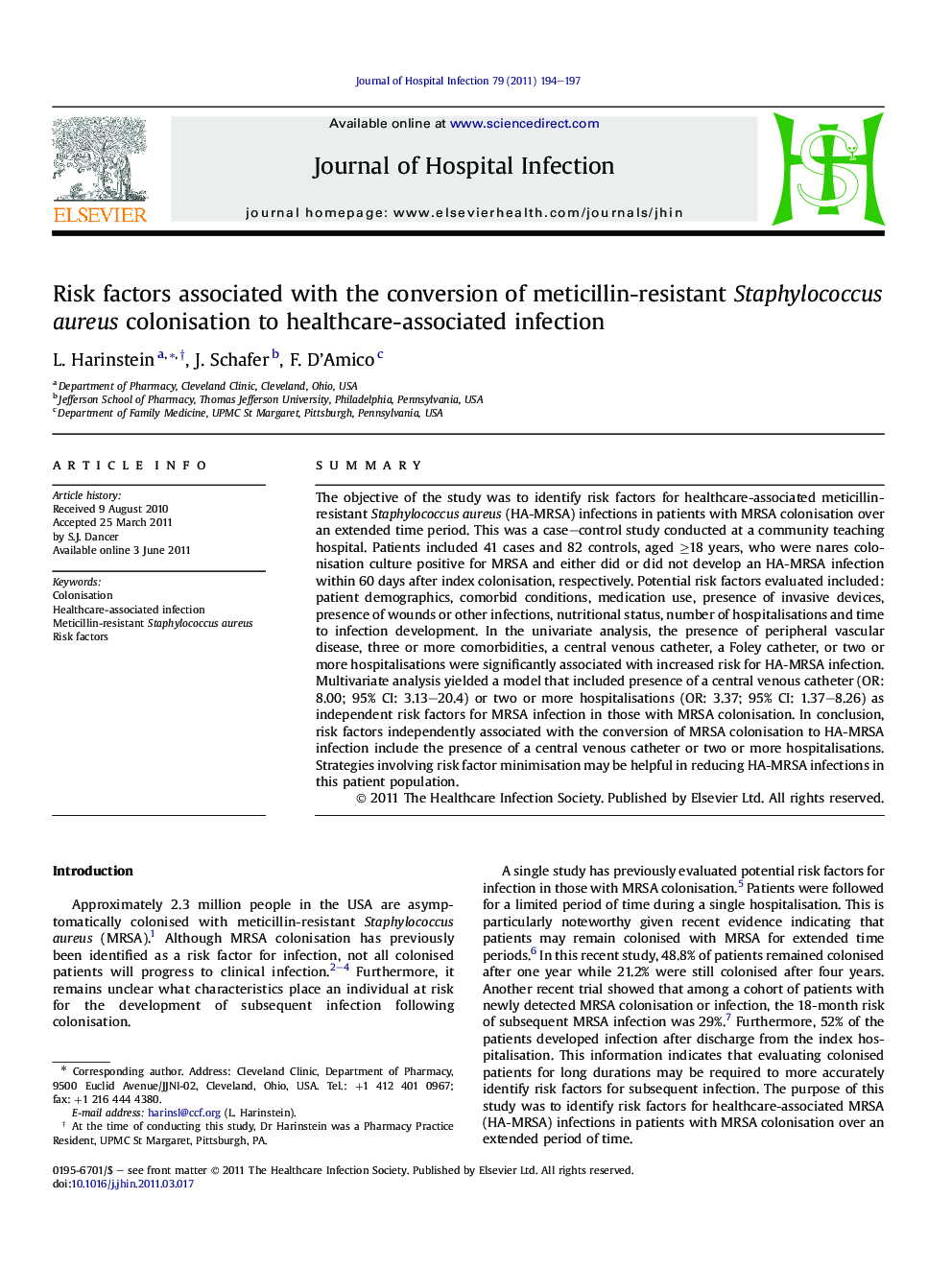| Article ID | Journal | Published Year | Pages | File Type |
|---|---|---|---|---|
| 3372081 | Journal of Hospital Infection | 2011 | 4 Pages |
SummaryThe objective of the study was to identify risk factors for healthcare-associated meticillin-resistant Staphylococcus aureus (HA-MRSA) infections in patients with MRSA colonisation over an extended time period. This was a case–control study conducted at a community teaching hospital. Patients included 41 cases and 82 controls, aged ≥18 years, who were nares colonisation culture positive for MRSA and either did or did not develop an HA-MRSA infection within 60 days after index colonisation, respectively. Potential risk factors evaluated included: patient demographics, comorbid conditions, medication use, presence of invasive devices, presence of wounds or other infections, nutritional status, number of hospitalisations and time to infection development. In the univariate analysis, the presence of peripheral vascular disease, three or more comorbidities, a central venous catheter, a Foley catheter, or two or more hospitalisations were significantly associated with increased risk for HA-MRSA infection. Multivariate analysis yielded a model that included presence of a central venous catheter (OR: 8.00; 95% CI: 3.13–20.4) or two or more hospitalisations (OR: 3.37; 95% CI: 1.37–8.26) as independent risk factors for MRSA infection in those with MRSA colonisation. In conclusion, risk factors independently associated with the conversion of MRSA colonisation to HA-MRSA infection include the presence of a central venous catheter or two or more hospitalisations. Strategies involving risk factor minimisation may be helpful in reducing HA-MRSA infections in this patient population.
